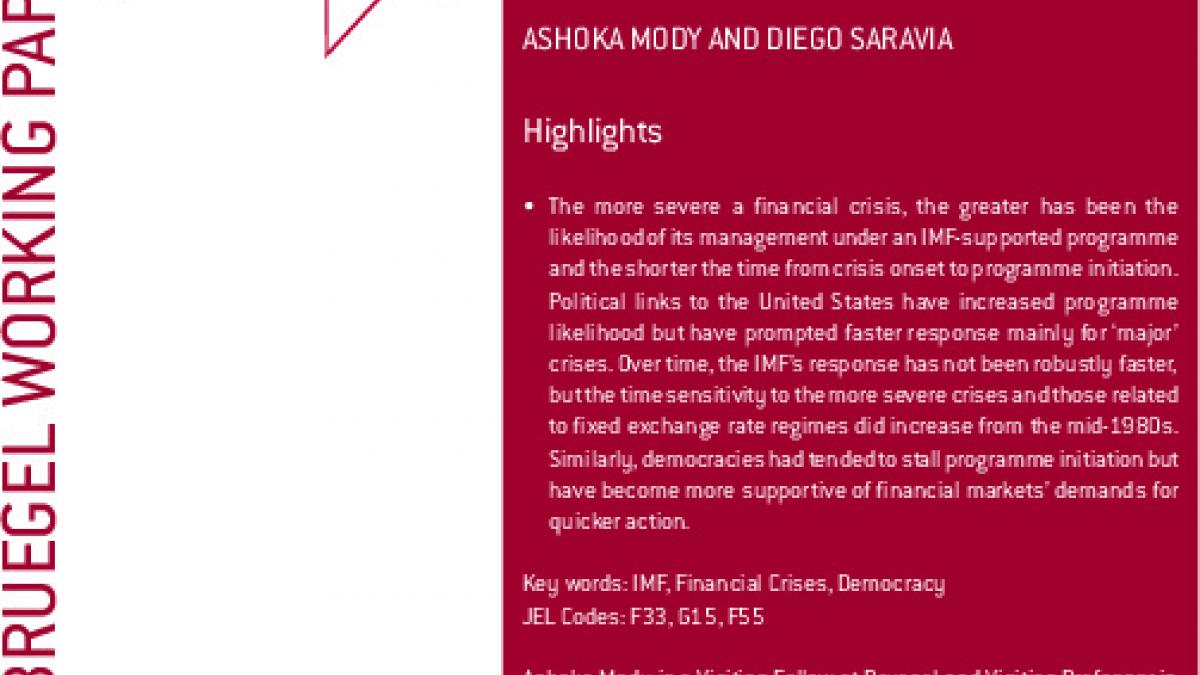The response speed of the International Monetary Fund
The more severe a financial crisis, the greater has been the likelihood of its management under an IMF-supported programme and the shorter t

The more severe a financial crisis, the greater has been the likelihood of its management under an IMF-supported programme and the shorter the time from crisis onset to programme initiation. Political links to the United States have increased programme likelihood but have prompted faster response mainly for ‘major’crises. Over time, the IMF’s response has not been robustly faster, but the time sensitivity to the more severe crises and those related to fixed exchange rate regimes did increase from the mid-1980s. Similarly, democracies had tended to stall programme initiation but have become more supportive of financial markets’ demands for quicker action.